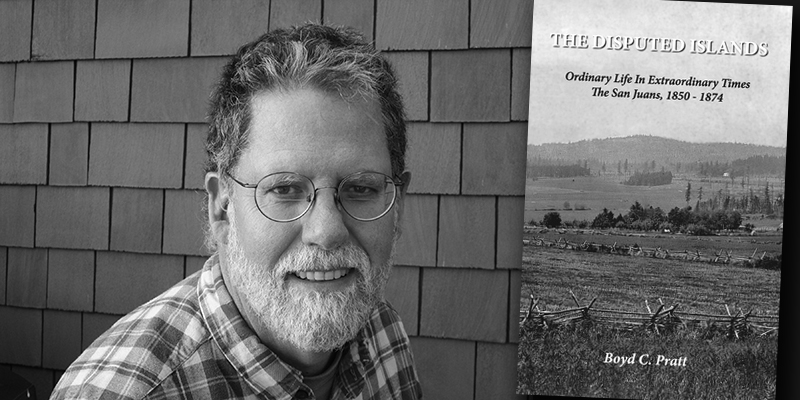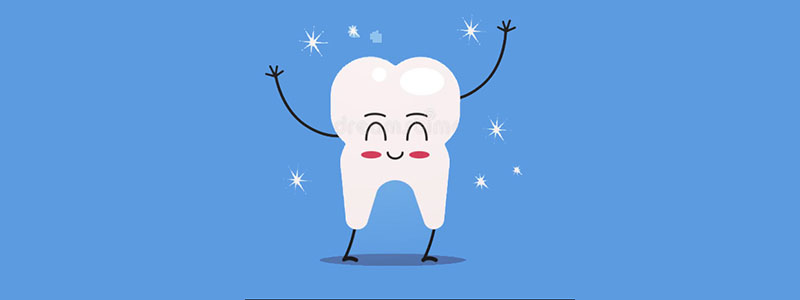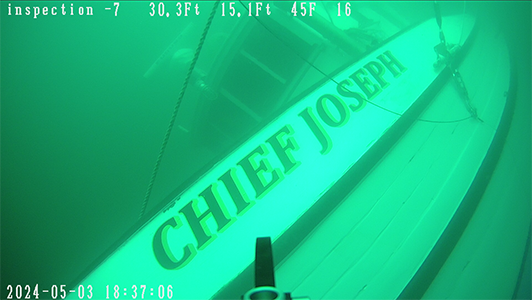||| SUN DAYS ON ORCAS by EDEE KULPER |||
Every person has a different natural bent. My natural state is happy contentment (unless someone else’s negative bent is put upon mine).
I think I can thank my genes for the daily optimism I feel, but I can also thank my parents for it. They were both happy, content people. My mom kept lightheartedness, laughter, and nonjudgment alive in our home every single day, and my dad was chipper, even keeled, and kind.
Some people have endured familial hardship and have a hard time finding a happy plumb line. It probably goes without saying that if someone’s childhood involves discord or a daily smattering of different forms of it – bickering, accusation, yelling, argument, judgment, suspicion, disgruntlement, distrust, abuse, etc. – their baseline attitude probably isn’t going to be happiness and contentment. Perhaps most people would have happiness as their natural bent if they all had happy childhoods. Others suffer if the natural bent that genetics dealt them at birth was burdensome.
They used to say we are 50/50 nature and nurture. After observing that each child comes out of the womb with a certain demeanor that characterizes their life, I believe we are about 98% nature and 2% nurture. But I would surmise that 2%, while it may not affect our inherent personality (who we are at our essence and core, what we like to do, etc.), shapes our attitude about life – our level of happiness.
Happiness gets a bad rap. Happiness isn’t highly valued in Christian culture. (I feel a lot of things about Christian culture that I may be divorcing myself of. Not the bible – the culture.) Happiness as viewed by Christianity is fleeting and fickle. Meanwhile popular media coerces us to believe that happiness is attained by being extraordinary, famous, rich, genius-minded, or stunningly attractive. “Influencers” – that’s the “it” word these days, isn’t it? – teach you systems they follow that imply the goal of ultimate happiness through their method of eating, dressing, exercising, buying, sexing, or sleeping. Authors are out-writing each other with every bestseller touting a mental configuration they’ve either realized or devised that if clearly understood and adopted will open the invisible doors in the cosmos that you’ve been endlessly seeking to provide ultimate self-awareness and contentment on this planet. If you’re happy, some people assume you’re stuffing down all the things in your life that are unhappy and that you better deal with them (though I’ve found through experience that sometimes you do have to stuff, suspend, or disconnect from the hard things in order to be happy and enjoy life’s daily gifts).
If you happen to be someone who has had others constantly wrapping you in their discord, anxiety, or dysfunction of some sort, I recommend seeking out new ways of seeing the world.
Since the age of 30, I’ve leaned on Christianity in good times and bad, and it has served me well in most circumstances. (Though it doesn’t exist to “serve” me.) In the past I felt as though I would be disloyal to it if I sought other forms of guidance. I eschewed the influences of radio music, TV, movies, and anything crass or immoral while rearing our children. I basically re-sensitized myself after growing up inundated and desensitized by the lewdness inherent in popular culture. (What isn’t lewd in popular culture?) I surrounded our children with only positive, innocent influences, something I still believe in. Even so much of adult media and literature is empty bunk in its need to be perceived as hip, chic, sophisticated, or trendy.
Lately I’ve allowed myself to spread out to learn from other philosophical, psychological, and spiritual constructs. It all began with seeing an acquaintance on the street, which turned into one of the deepest conversations I’ve ever had (that’s Orcas for you). He told me all about some personal experiences that were unlike anything I’ve ever heard, all which led to his experiencing an undeniable sense of love for everyone and everything. He gave me his autobiography to read and lent me a book that he feels aligns with those experiences called The Ra Contact: Teaching the Law of One. After about 40 pages in, I stopped. It is either beyond what I believe in a way that feels wrong to me, or it is beyond what I believe in a way that requires an entire reformation of my inner spiritual framework. If what is in its pages isn’t accurate about the universe, I don’t want it in my head. If it is accurate, I need time to process it. In the meantime, I need a break to somehow discern its legitimacy.
On matters of the heart, I’ve had a feeling I’ve needed whatever Brene Brown talks about for a long time. I’d never taken the time, so I dove into her YouTube speeches, books, and audiobooks from the library. Her research findings on love, belonging, connection, vulnerability, shame, courage, and leadership are fascinating. I love the way Brene articulates the feelings we have with such aplomb, in ways that are constantly experienced yet rarely articulated in daily life. I desperately needed her articulated thoughts because many of them I shared but had not put words to. Everything she said filled gaps I so longed to have filled. I needed what she spoke about.
Regarding connecting with the unseen network of energy connecting all of us in the world, I happened upon a man named Vishen Lakhiani, promoting a form of meditation called The Silva Mind Control Method. I was seeking new ways of controlling my mind, redirecting it, and pulling out of old neuropathways and constructing new ones, so this sounded intriguing. I bought the book that teaches the method. I’m only about 30 pages into it, and I know I can benefit from at least some of what it is teaching. (I also think prayer is what is happening if a meditator using this technique chooses to see it that way).
I also bought Vishen’s book called The Code of the Extraordinary Mind: 10 Unconventional Laws to Redefine Your Life and Succeed on Your Own Terms. It’s all about becoming conscious of the unspoken (or even spoken) “rules” we follow in areas like love, education, spirituality, and work that keep us from living life the way we might naturally choose to, had we not been ingrained to narrow our options by our families or culture. Having studied Cultural Anthropology in college, and how different cultures rest on different ways of viewing love, family, society, religion, etc., I was intrigued by this book. I’m only in the teens so far, and while it is a good reminder to step out of the world’s rules put upon us, I also believe certain mental constructs are beneficial for our lives when we need areas of predictability, order, and safety.
I remembered an acquaintance telling me months ago about how the teachings of Eckhart Tolle changed her life. His audiobooks happened to be near Brene’s in the library, so they came home with me too. His is probably some of the most fascinating material I’ve heard so far. I don’t have far distances to drive, but his CDs keep me listening long past the time that I’ve turned off the car. I feel like all humans could benefit from what he says. It’s calming, deep, humorous, and important – and a completely different way of thinking about thinking. It could literally help reroute anyone’s thought life right away, whether they are in current problems or stuck in mental patterns put upon them by their family or culture of origin. I love that it isn’t a fad. It’s a man’s refreshing ideas about how we think.
If you are in the midst of hard times, it can also help to simply read books by people who have written about their hard times. Sometimes it isn’t solutions we need, it’s camaraderie – sharing in pain together. Even though our struggles may differ, it’s deeply helpful knowing we’re not alone. I’ve always felt I needed to read I Know Why the Caged Bird Sings by Maya Angelou. The title alone draws me in. I need to know why that caged bird sings for times that my challenges threaten my happiness, my joy, my voice, and my enthusiasm. I need to know how she has chosen to see the world, and if it can help how I choose to see it. I’m halfway through it, and I squeeze more pages in every chance I get. While popular movies teach us to feast on others’ pain, what we often need most is to join hands in our suffering.
This is a minute tip of the vast iceberg out there, and I can’t wait to learn more tangents of thinking that have heretofore eluded my attention. Some philosophies I will do without, like those in the Wiccan books erected on stands right now in the library in honor of Halloween.
While I have questioned many aspects of Christian culture ever since Trump, COVID, and personal difficulties in my life, I imagine Christianity itself will remain a framework in my life. But what puts me off about it is how some Christians decide how to interpret what the bible says, which to them becomes the religion itself; and if you don’t live like them, you must not be on the right track. They’ve somehow bottled a summary for the incalculable vastness of space, spirit, and universe that comes down to living in very certain ways here on earth. (Can anyone know with certainty what the God of the universe looks like? What physically happens when our souls depart from our bodies? Where in the universe our souls go? How time as we know it meshes with timelessness?) No one can synthesize the unknowable into a formula that equals volunteering at the church for every event, giving a certain percentage each month, speaking with church-ese, and sending your kids to boarding school so you can fulfill another important “mission.” Maybe it works that way. Maybe it doesn’t. That’s why it’s called faith. The farther away I mentally get from religion, the closer I get to wanting to find out what God really is, and the more I truly feel selfless, generous, helpful, and aligned with why God may have me here. In short, when I get away from the cultural programming, I feel closer to what may actually be real.
If negativity in your upbringing, your culture, or your present personal relationships has anything to do with your emotional state today as an adult, know that happiness is real. Happiness is possible. It isn’t just some fantasy set aside for the lucky ones, or an unattainable fairytale. You can have a happy life in general (making wise personal choices plays a big role in that). Young kids don’t get a say in the people who raise them, but you as an adult have every say in the people you choose to surround yourself with and the activities you participate in. If they aren’t positive, kind, supportive, encouraging, and loving, they don’t have to be part of your life unless you believe things are improving. If not, either set strong boundaries, demand space away from them, or get help from outside sources.
(If there’s anyone in your life who is actually abusing you, you are not alone and you need others who know the right ways to help you so that your privacy will be respected but you will no longer be hurt. Call 360-378-8680 to talk with someone at SAFE San Juans or visit www.safesj.org. You can also reach someone anytime of the day or night by calling SAFE’s 24/7 crisis line at 360-378-2345. If you are in immediate danger, call 911 and they will help you right away. October is Domestic Violence Awareness Month, and you will notice purple lights around town in honor of it.)
While your past cannot be relived, your present and future can still be characterized by happiness. It is real, no matter how people talk down about it, misrepresent it, or blow it off.









Great perspectives and recommendations, Edee!
This is a brave, insightful, vulnerable, and open minded and hearted write, Edee. I salute you for facing this, for knowing there were things you needed but lacket, and for your search to find things you need, and that you are open minded and open hearted. That is so important.
I think good morality (for lack of a better world) crosses all cultural and religious boundaries; it seeks to unify us rather than divide and separate us. It listens and allows a live and let live attitude, allows Natural Law to bring out the good and wholesome in us. I think we all need spiritual codes to live by; and we know when we are not living up to them because it feels bad – not good or happy. We’ve all been fed the big lie that happiness is not possible. But I think it is, every day, in attention to the small moments. It all depends on focus and gratitude.
I don’t know you but I see you as positive, cheerful person who loves life and is naturally open and curious.
. I agree about Ekhart Tolle – His books are wonderful. One doesn’t have to abandon the foundations of their spirituality or religion, and it’s not betraying that foundation to augment it with things are aligned with the Universal teachings within them. I trust heart-centered spiritualities more than the heady dogmatic stuff.
Thanks for this reminder. It is that that allows people of much different backgrounds and belief systems to find unity and commonality within the differences.